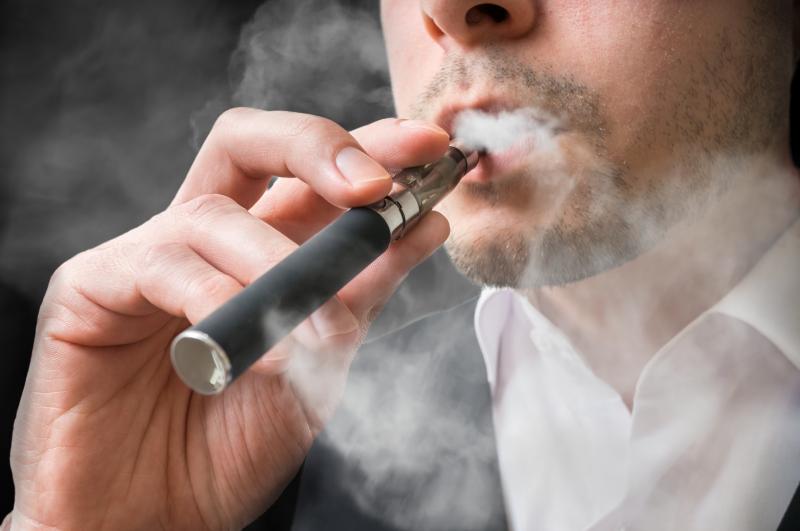Smoking, e-cigarette use put teens at risk of COVID-19




 The purchase, use and possession of electronic nicotine delivery systems, such as e-cigarettes and vaporisers, will be banned in Singapore, starting early next year.
The purchase, use and possession of electronic nicotine delivery systems, such as e-cigarettes and vaporisers, will be banned in Singapore, starting early next year.Smoking appears to be a strong contributor to the medical vulnerability of young adults to the coronavirus disease 2019 (COVID-19), according to a recent study.
“The findings from this analysis indicate that nearly one in three young adults are medically vulnerable to severe COVID-19 illness. In contrast, in the nonsmoking young adult group, only about one in six is medically vulnerable to severe COVID-19 illness,” researchers said.
The study included 8,405 young adults between the ages of 18 and 25 years. Medical vulnerability, assessed as a composite measure of health conditions and smoking habits, was reported in 32 percent of the overall sample. Male participants were significantly more likely to be vulnerable than female counterparts (33 percent vs 30 percent; p<0.01). [J Adolesc Health 2020;67:362-368]
Medical vulnerability was defined as six medical conditions (a history of heart condition, diabetes, asthma, immune conditions, liver conditions, and obesity) along with past 30-day use of tobacco, electronic cigarettes, and cigar or cigar-type products.
Most of the participants (n=6,741) were nonsmokers, and the rate of medical vulnerability in this group was half of that in the full sample, at 16 percent. Among nonsmokers, females were more medically vulnerable than males (19 percent vs 13 percent; p<0.001).
Of the vulnerability risk factors, all three smoking indicators were among the most prevalent: past 30-day smoking (11 percent), e-cigarette use (7 percent), cigar or cigar-like product use (5 percent). Current asthma was also highly prevalent, which was reported in 9 percent of the participants.
Researchers also noted important sex differences in terms of the vulnerability indicators. Asthma, for example, occurred more frequently among females (10 percent vs 7 percent; p<0.01). On the other hand, all three smoking indicators were more common among males (smoking: 13 percent vs 9 percent; e-cigarette use: 9 percent vs 5 percent; cigar products use: 7 percent vs 2 percent; p<0.001 for all).
The analysis of vulnerability and its indicators according to sex demonstrated the magnitude of influence of smoking habits, the researchers explained. The greater overall vulnerability in males was driven by the effect of smoking and e-cigarette use, which overshadowed the greater prevalence of asthma and immune conditions in females.
“Overall, a key finding is that the most prevalent factor conferring medical vulnerability to severe COVID-19 illness among youth is smoking,” the researchers said. “Notably, the risk of being medically vulnerable is halved when smokers, including e-cigarette users, are removed from the sample.”
“This points to the importance of preventive services and interventions in these areas for children and adolescents and of risk reduction efforts at any age. Such interventions have the potential to reduce medical vulnerability to severe COVID-19 illness and other serious health conditions,” they added.